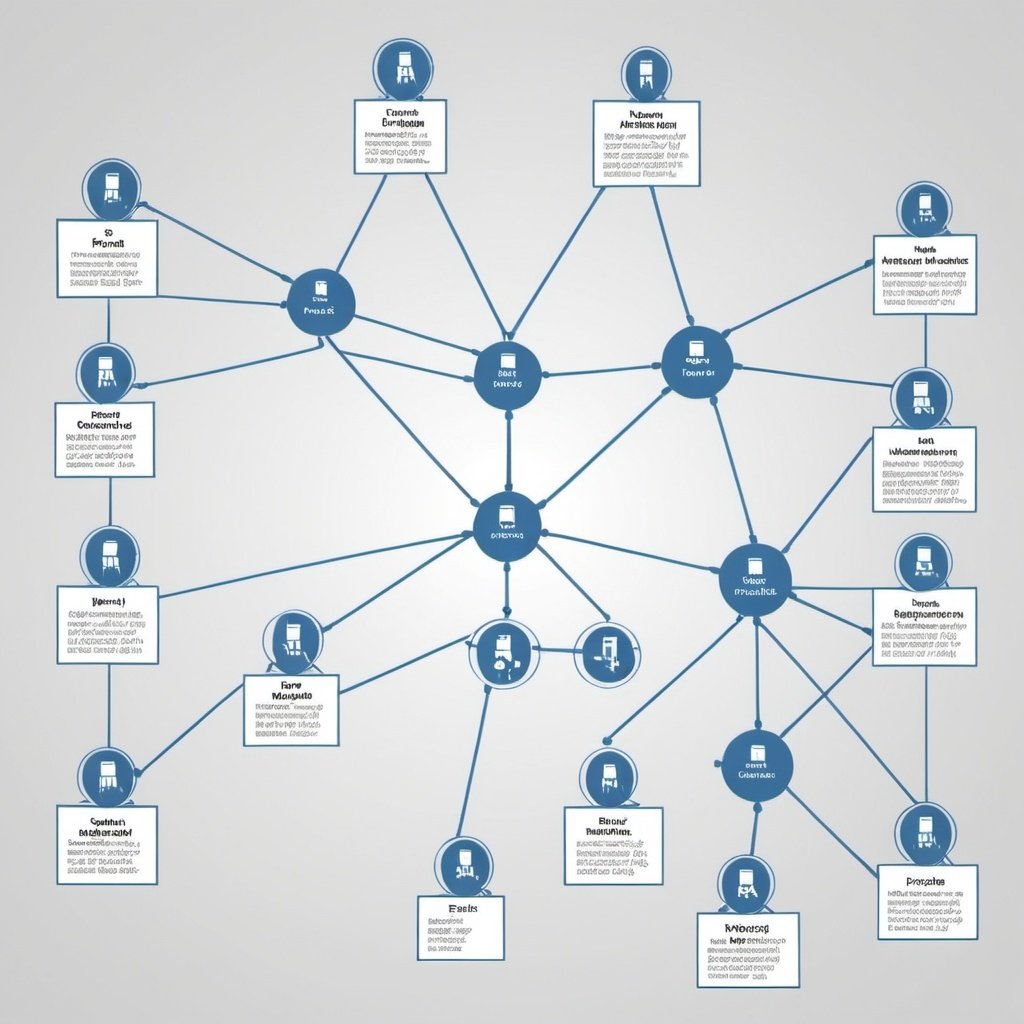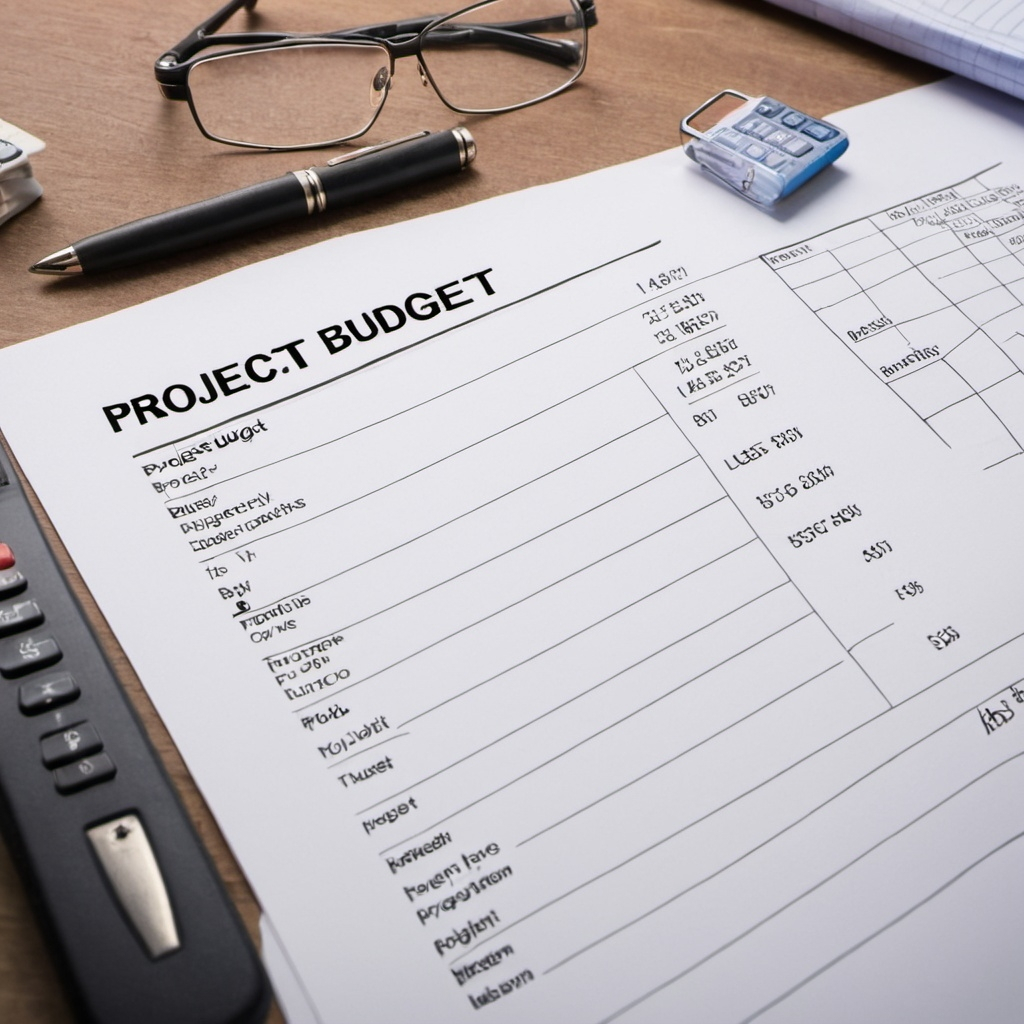A Comprehensive Guide for Organizations
In the fast-paced and ever-evolving business landscape, organizations continuously seek methodologies that enhance efficiency, reduce waste, and deliver value to customers. One such methodology that has gained significant traction is Lean project management. Originating from the manufacturing sector, Lean has transcended its roots to become a pivotal framework in various industries, including software development, healthcare, and service sectors. At its core, Lean focuses on maximizing value by minimizing waste, ensuring that every step in a process contributes to the end goal without unnecessary redundancies.
Table of Contents
Mastering Lean Methodology in Project Management
Understanding Lean Methodology.
Benefits of Lean Project Management
Achieving Lean Methodology in Any Organization.
Case Studies of Successful Lean Implementation.
Challenges and Solutions in Lean Implementation.
How Project Managers Can Benefit from Lean Methodology.
Lean methodology, rooted in the principles of the Toyota Production System (TPS), emphasizes continuous improvement, respect for people, and a commitment to delivering value to customers. It advocates for a holistic view of the workflow, identifying and eliminating non-value-adding activities, known as waste or “muda.” This approach not only enhances operational efficiency but also fosters a culture of continuous improvement and employee engagement. As organizations strive to remain competitive and agile, Lean project management offers a structured yet flexible framework to achieve these objectives.
Implementing Lean in project management involves a paradigm shift in how projects are conceptualized, planned, and executed. It requires a keen understanding of customer needs, meticulous planning to streamline processes, and a relentless pursuit of improvement. While the benefits of Lean are well-documented, the path to achieving it can be challenging, necessitating a strategic and sustained effort from all levels of an organization.

This article delves into the intricacies of Lean methodology in project management, exploring its principles, benefits, and practical steps for successful implementation in any organization. Whether you are a project manager, a team leader, or a senior executive, understanding and adopting Lean can significantly enhance your organization’s project outcomes and overall performance.
Understanding Lean Methodology
The Core Principles of Lean
Lean methodology is grounded in five fundamental principles that guide the transformation of an organization’s operations:
- Value Identification: Understanding what the customer perceives as value is the first step. It involves determining the specific needs of the customer and ensuring that every action taken contributes to meeting these needs.
- Value Stream Mapping: This principle involves mapping out all the processes involved in delivering the product or service. By visualizing the entire value stream, organizations can identify and eliminate non-value-adding activities.
- Flow Optimization: Ensuring that the workflow is smooth and uninterrupted is crucial. This involves removing bottlenecks and ensuring that processes are streamlined for efficiency.
- Pull-Based System: Rather than pushing products or services based on forecasts, Lean advocates for a pull-based system where work is initiated based on actual demand, reducing overproduction and inventory.
- Continuous Improvement (Kaizen): Lean is not a one-time initiative but a continuous process. Organizations must foster a culture of ongoing improvement, where employees at all levels are encouraged to suggest and implement improvements.
Benefits of Lean Project Management
The implementation of Lean methodology in project management offers several tangible and intangible benefits:
- Enhanced Efficiency: By eliminating waste and optimizing processes, projects can be completed more quickly and with fewer resources.
- Improved Quality: Focus on value and continuous improvement leads to higher quality outputs that meet or exceed customer expectations.
- Cost Savings: Reduced waste and increased efficiency translate into significant cost savings for the organization.
- Employee Engagement: Lean principles encourage employee involvement in decision-making and improvement processes, leading to higher job satisfaction and retention.
- Agility and Responsiveness: Lean organizations can adapt more quickly to changes in customer demands and market conditions.
Achieving Lean Methodology in Any Organization
Implementing Lean methodology in project management requires a strategic approach, involving several key steps:
1. Leadership Commitment and Cultural Change
The foundation of a successful Lean implementation is strong leadership commitment. Leaders must not only endorse Lean principles but also embody them in their daily actions. This involves:
- Setting a Vision: Clearly articulating the vision and benefits of Lean to the organization.
- Leading by Example: Demonstrating commitment to Lean principles through personal behavior and decision-making.
- Encouraging a Lean Culture: Fostering a culture where continuous improvement is valued and employees feel empowered to contribute ideas.

2. Training and Development
Employees at all levels must understand Lean principles and how to apply them. This requires comprehensive training programs that cover:
- Lean Principles and Tools: Providing foundational knowledge of Lean concepts, tools, and techniques.
- Practical Application: Offering hands-on training and real-life examples to help employees apply Lean principles in their work.
- Ongoing Support: Ensuring that employees have access to resources and support as they implement Lean practices.
3. Value Stream Mapping
Mapping the value stream is a critical step in identifying waste and opportunities for improvement. This involves:
- Documenting Processes: Creating detailed maps of current processes to visualize the flow of work.
- Identifying Waste: Highlighting areas where activities do not add value to the customer.
- Developing a Future State: Designing an optimized process flow that eliminates waste and enhances value delivery.
4. Implementing Lean Tools and Techniques
Several Lean tools and techniques can be employed to streamline processes and enhance efficiency:
- 5S (Sort, Set in order, Shine, Standardize, Sustain): A workplace organization method that enhances efficiency and safety.
- Kanban: A visual management tool that helps teams manage workflow and balance demand with capacity.
- Kaizen Events: Short-term, focused improvement projects that involve cross-functional teams working together to solve specific problems.
- Root Cause Analysis (5 Whys): A problem-solving technique that involves asking “why” multiple times to identify the root cause of an issue.
5. Establishing Metrics and KPIs
To measure the success of Lean initiatives, organizations must establish clear metrics and key performance indicators (KPIs). This involves:
- Defining Metrics: Identifying relevant metrics that align with organizational goals and Lean principles.
- Tracking Progress: Regularly monitoring performance against these metrics to identify trends and areas for improvement.
- Adjusting Strategies: Using data-driven insights to refine and adjust Lean strategies as needed.
6. Fostering Continuous Improvement
Lean is an ongoing journey rather than a destination. To sustain Lean efforts, organizations must:
- Encourage Employee Involvement: Creating channels for employees to share ideas and participate in improvement initiatives.
- Celebrate Successes: Recognizing and rewarding teams and individuals for their contributions to Lean projects.
- Adapt and Evolve: Continuously reviewing and refining Lean practices to adapt to changing business conditions and customer needs.
Case Studies of Successful Lean Implementation
Toyota
As the birthplace of Lean methodology, Toyota has set the gold standard for Lean implementation. The Toyota Production System (TPS) emphasizes just-in-time production, respect for people, and continuous improvement. By relentlessly focusing on waste elimination and value creation, Toyota has achieved remarkable efficiency and quality in its manufacturing processes, leading to its position as a global automotive leader.
Intel
Intel, a leading technology company, successfully applied Lean principles to its manufacturing and product development processes. By adopting Lean, Intel significantly reduced cycle times, improved product quality, and enhanced operational efficiency. Lean enabled Intel to respond more quickly to market demands and maintain its competitive edge in the technology sector.
Virginia Mason Medical Center
Virginia Mason Medical Center in Seattle implemented Lean to improve patient care and operational efficiency. By applying Lean principles, the medical center reduced patient waiting times, improved safety and quality of care, and increased employee engagement. Lean enabled Virginia Mason to deliver higher value to patients while controlling costs.

Challenges and Solutions in Lean Implementation
Implementing Lean methodology is not without challenges. Some common obstacles include:
Resistance to Change
Employees may resist Lean initiatives due to fear of the unknown or concerns about increased workload. To overcome this:
- Communicate Clearly: Explain the benefits of Lean and how it will positively impact both the organization and employees.
- Involve Employees: Engage employees in the planning and implementation process to gain their buy-in and support.
Lack of Expertise
Organizations may lack the necessary expertise to implement Lean effectively. To address this:
- Hire Experts: Bring in Lean consultants or hire employees with Lean experience.
- Invest in Training: Provide comprehensive training programs to build internal Lean capabilities.
Sustaining Momentum
Maintaining the momentum of Lean initiatives can be challenging. To ensure ongoing success:
- Regular Reviews: Conduct regular reviews of Lean projects to assess progress and identify areas for improvement.
- Leadership Support: Ensure continuous support and commitment from leadership to reinforce the importance of Lean.
How Project Managers Can Benefit from Lean Methodology
In today’s competitive and dynamic business environment, project managers are constantly on the lookout for methodologies that can enhance efficiency, improve quality, and ensure successful project outcomes. Lean methodology, rooted in principles developed by the Toyota Production System (TPS), offers a comprehensive framework that can significantly benefit project managers. By focusing on value creation, waste elimination, and continuous improvement, Lean methodology provides project managers with the tools and strategies needed to deliver projects more effectively and efficiently.

1. Enhanced Efficiency and Reduced Waste
One of the primary benefits of Lean methodology for project managers is the enhancement of efficiency through waste reduction. Lean identifies seven types of waste (overproduction, waiting, transport, extra processing, inventory, motion, and defects) that do not add value to the customer. By systematically identifying and eliminating these wastes, project managers can streamline processes, reduce unnecessary steps, and ensure that resources are utilized more effectively. This leads to faster project completion times and a more efficient use of resources, which is critical in meeting tight deadlines and budgets.
2. Improved Quality and Customer Satisfaction
Lean methodology emphasizes the importance of delivering value to the customer. By focusing on understanding and meeting customer needs, project managers can ensure that the final deliverables align closely with customer expectations. Techniques such as continuous feedback loops and iterative improvements help in identifying and addressing defects early in the process, leading to higher quality outcomes. Improved quality directly translates to increased customer satisfaction, which is crucial for the long-term success of any project.
3. Enhanced Team Collaboration and Communication
Lean principles encourage a culture of collaboration and open communication among team members. By involving team members in the process of identifying and solving problems, project managers can foster a sense of ownership and accountability. Techniques such as daily stand-up meetings, Kanban boards, and visual management tools facilitate better communication and coordination within the team. This collaborative environment not only enhances team productivity but also leads to more innovative solutions and a more cohesive team dynamic.
4. Better Risk Management
Risk management is a critical aspect of project management, and Lean methodology provides tools and techniques that can enhance this process. By continuously monitoring and analyzing the workflow, project managers can identify potential risks and bottlenecks early on. Techniques such as root cause analysis (e.g., the 5 Whys) help in understanding the underlying causes of issues, enabling project managers to implement effective countermeasures. This proactive approach to risk management helps in mitigating risks before they escalate, ensuring smoother project execution.
5. Increased Flexibility and Adaptability
In today’s fast-changing business environment, flexibility and adaptability are key to project success. Lean methodology, with its focus on iterative improvements and responsiveness to customer feedback, enables project managers to adapt to changing requirements and market conditions more effectively. By adopting a pull-based system, where work is initiated based on actual demand rather than forecasts, project managers can ensure that projects remain aligned with customer needs and market trends. This flexibility is particularly valuable in industries where requirements can change rapidly, such as software development and technology.
6. Cost Savings
Cost management is a critical concern for project managers, and Lean methodology offers significant opportunities for cost savings. By eliminating waste and improving process efficiency, Lean reduces the overall cost of project execution. Techniques such as just-in-time production and inventory management minimize the costs associated with excess inventory and overproduction. Additionally, the focus on quality and defect reduction leads to lower rework and warranty costs. These cost savings can be reinvested into the project or used to enhance overall project profitability.
7. Continuous Improvement and Innovation
Lean methodology promotes a culture of continuous improvement, known as Kaizen. This principle encourages all team members to regularly evaluate processes and suggest improvements. For project managers, this culture of continuous improvement leads to ongoing enhancements in project processes and outcomes. The iterative nature of Lean also fosters a mindset of innovation, where teams are constantly looking for ways to optimize and innovate. This focus on continuous improvement and innovation ensures that projects not only meet current standards but also evolve to meet future challenges and opportunities.
8. Employee Engagement and Empowerment
Lean methodology empowers employees by involving them in decision-making and problem-solving processes. This empowerment leads to higher levels of engagement and job satisfaction, as team members feel valued and heard. For project managers, an engaged and motivated team is crucial for project success. High levels of employee engagement translate into increased productivity, creativity, and commitment to project goals. By fostering a positive and inclusive work environment, Lean methodology helps project managers build strong, high-performing teams.
9. Improved Decision-Making
Lean methodology emphasizes data-driven decision-making. By utilizing metrics and key performance indicators (KPIs), project managers can make informed decisions based on real-time data and insights. This analytical approach reduces the reliance on intuition and guesswork, leading to more accurate and effective decision-making. Tools such as value stream mapping and performance dashboards provide project managers with a clear view of project performance, enabling them to identify trends, spot issues, and make proactive adjustments.
10. Sustainability and Long-Term Success
Finally, Lean methodology contributes to the sustainability and long-term success of projects. By focusing on waste reduction, efficient resource utilization, and continuous improvement, Lean ensures that projects are not only successful in the short term but also sustainable in the long run. This long-term focus helps project managers build resilient processes that can withstand changing market conditions and evolving customer needs. Sustainability in project management leads to lasting value for both the organization and its stakeholders.
Inference
Lean methodology offers a powerful framework for project managers seeking to enhance efficiency, improve quality, and deliver value to customers. By focusing on waste reduction, continuous improvement, and customer-centricity, Lean provides project managers with the tools and strategies needed to achieve successful project outcomes. The benefits of Lean methodology extend beyond immediate project success, fostering a culture of collaboration, innovation, and sustainability. As organizations continue to navigate an increasingly complex and competitive business environment, Lean methodology provides a clear path to achieving excellence in project management. By embracing Lean principles, project managers can not only meet current project goals but also position their teams and organizations for long-term success.
With Lean methodology organizations are basically increasing efficiency, reducing waste, and delivering value in project management. By embracing Lean principles, organizations can achieve significant improvements in operational performance, employee engagement, and customer satisfaction. Implementing Lean requires a strategic and sustained effort, involving leadership commitment, employee training, value stream mapping, and the use of Lean tools and techniques. While challenges may arise, the benefits of Lean far outweigh the obstacles, making it a worthwhile investment for any organization.
In a world where agility and efficiency are paramount, Lean project management provides the tools and mindset needed to thrive. As organizations continue to navigate an increasingly complex business environment, Lean offers a clear path to achieving excellence in project management and beyond. By fostering a culture of continuous improvement and empowering employees to contribute to the organization’s success, Lean not only transforms processes but also builds a resilient and adaptive organization poised for long-term success.





